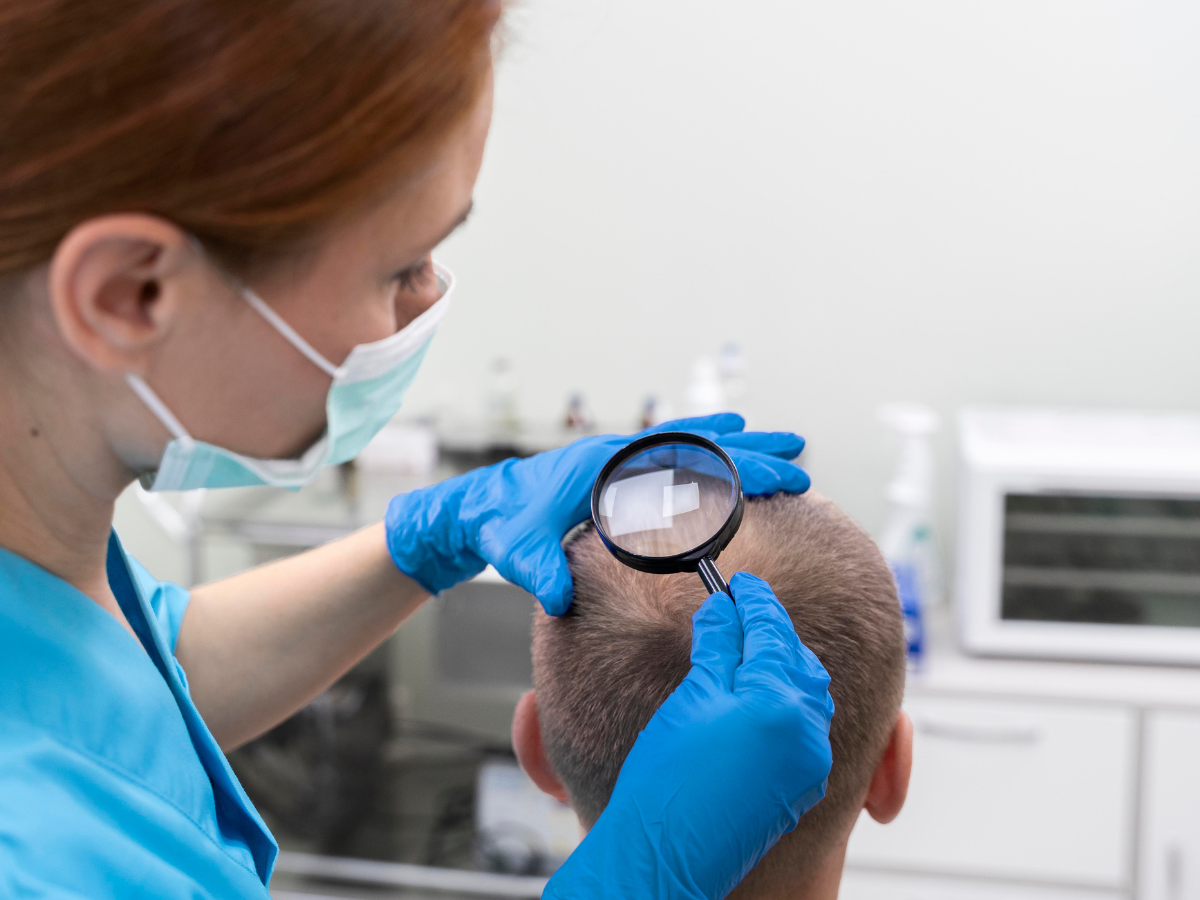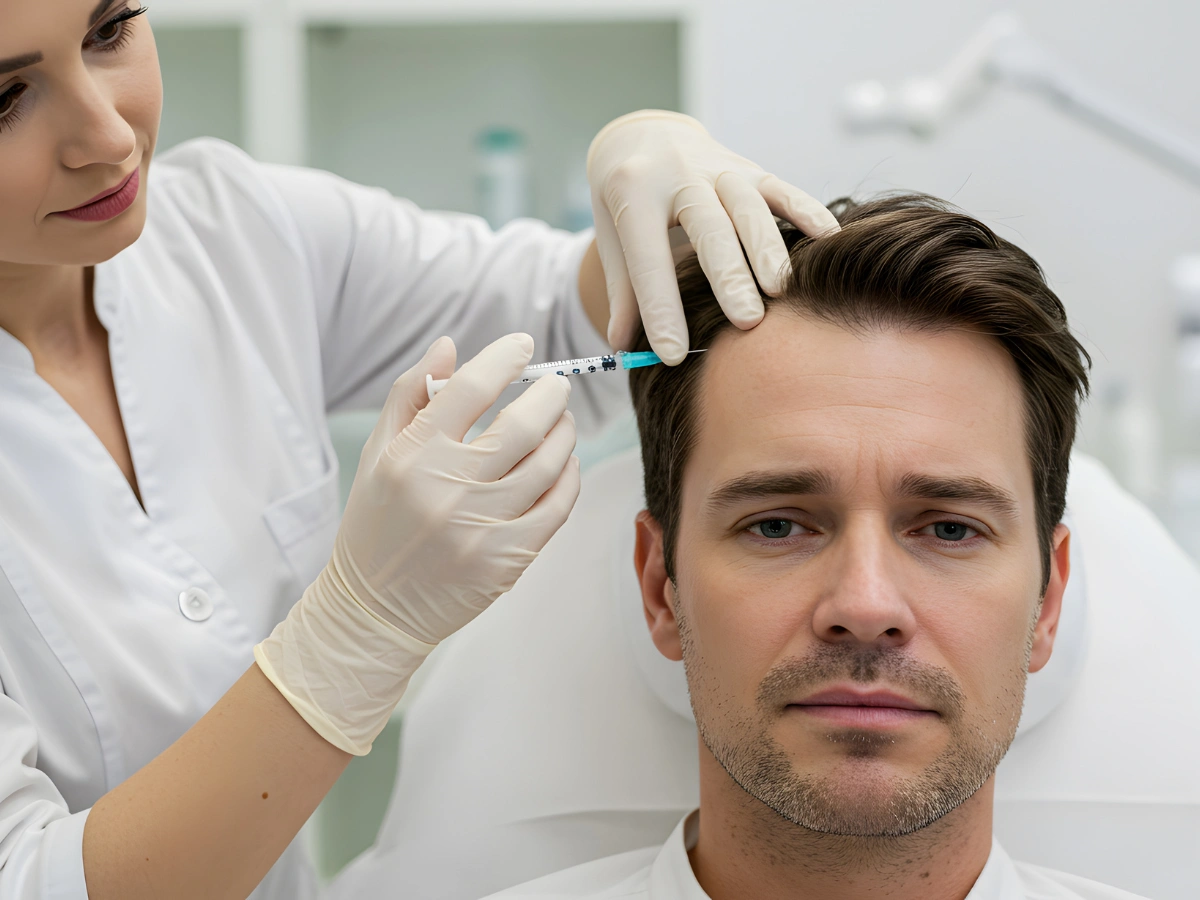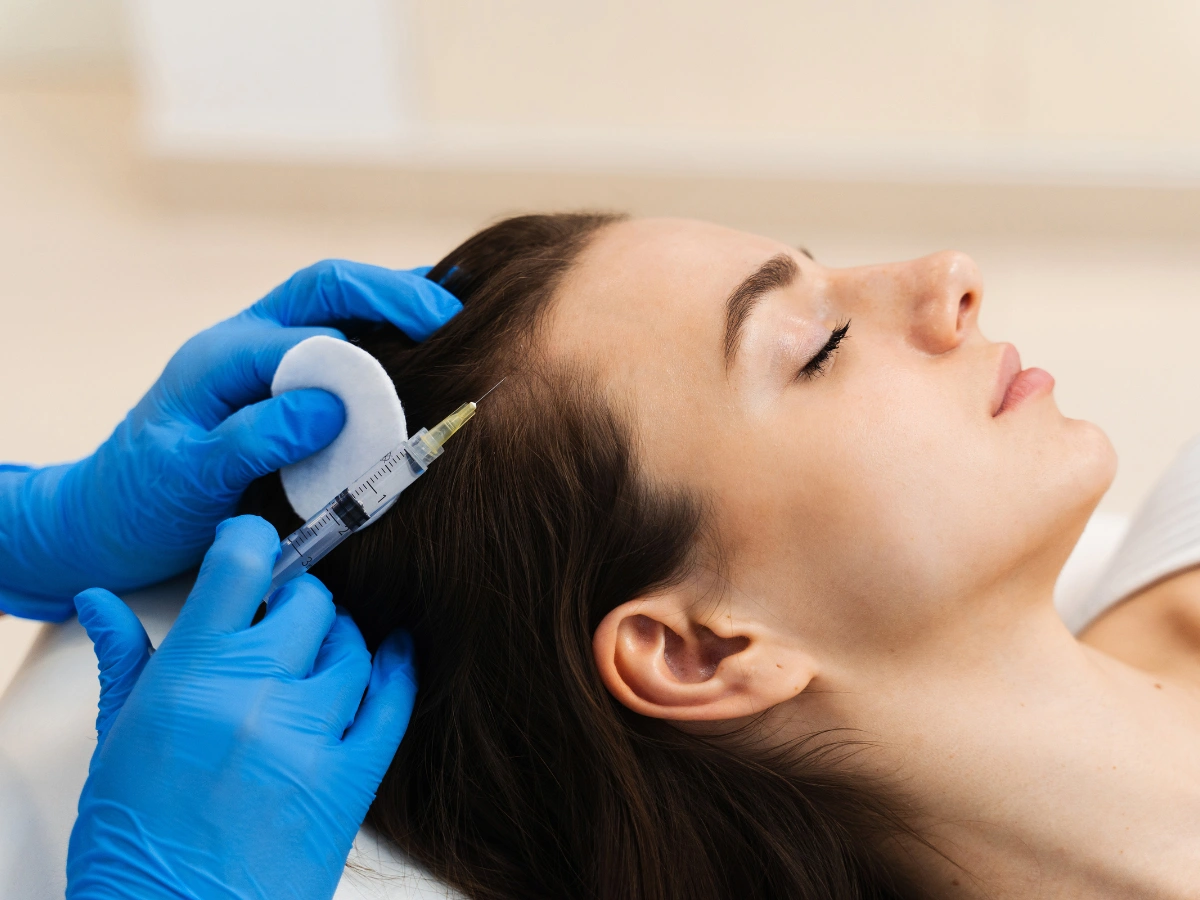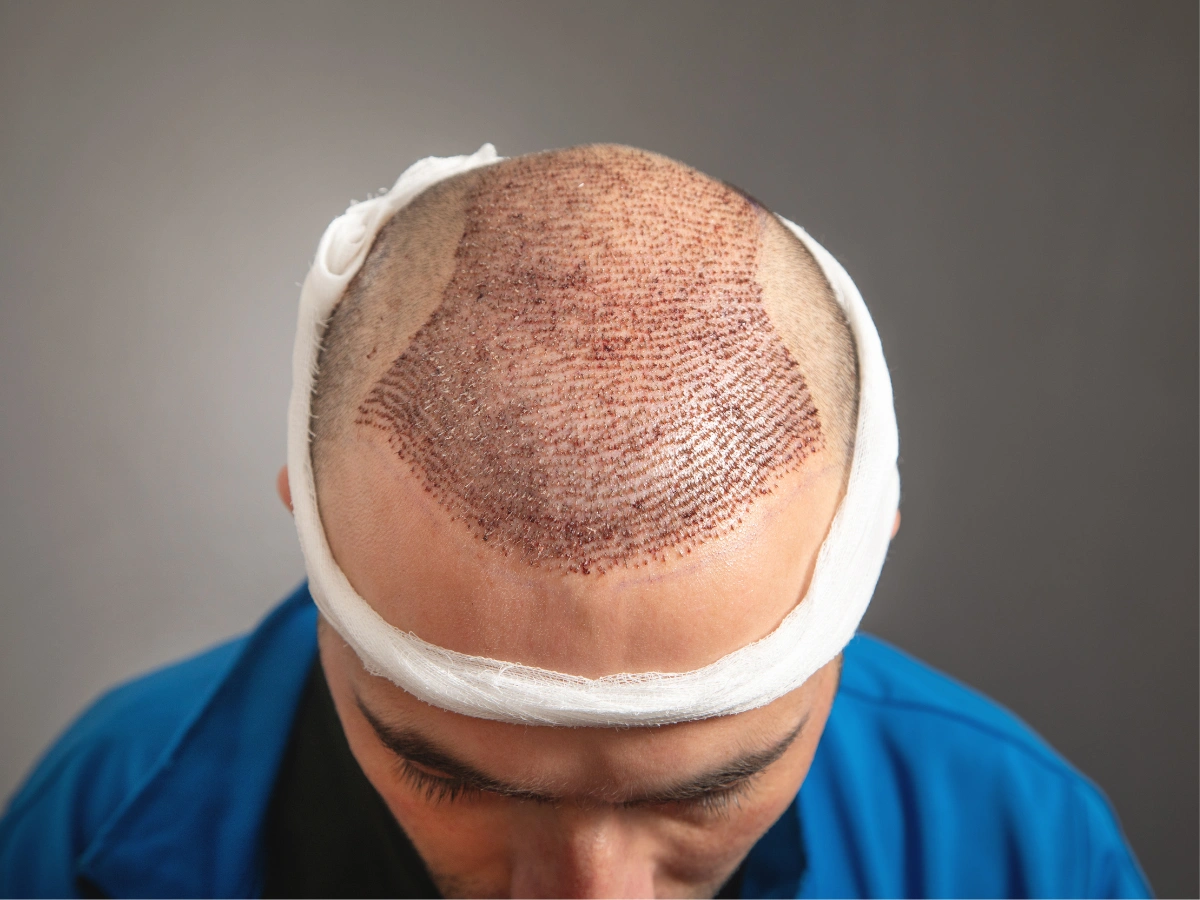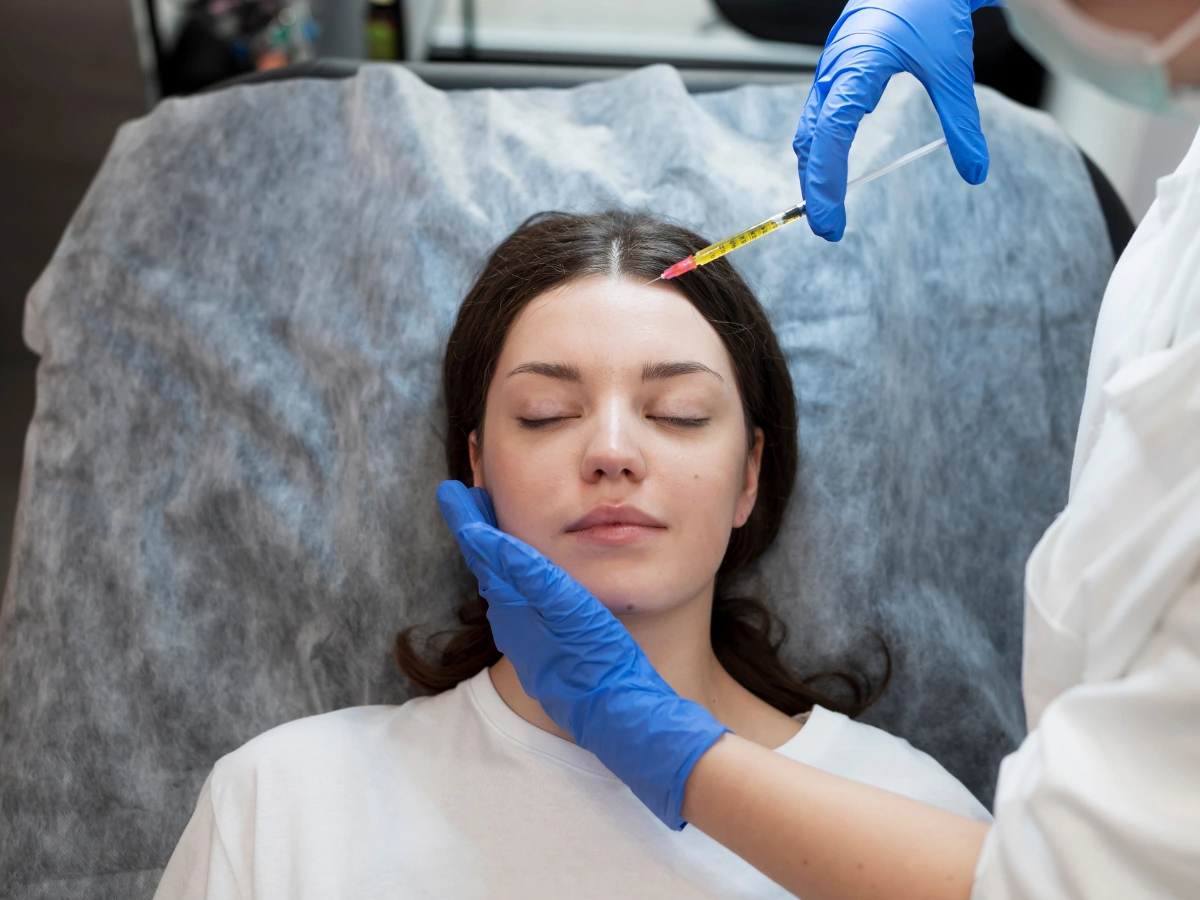Hair loss is one of the most visible and emotionally difficult effects of chemotherapy.
For many cancer patients across the United Kingdom, losing hair can feel like losing part of their identity.
Fortunately, several ongoing clinical trials in chemotherapy are helping patients manage, reduce, or even prevent hair loss.
With advanced research, innovative techniques, and personalised care, these trials bring new hope to those facing chemotherapy.
What Are Chemotherapy Clinical Trials
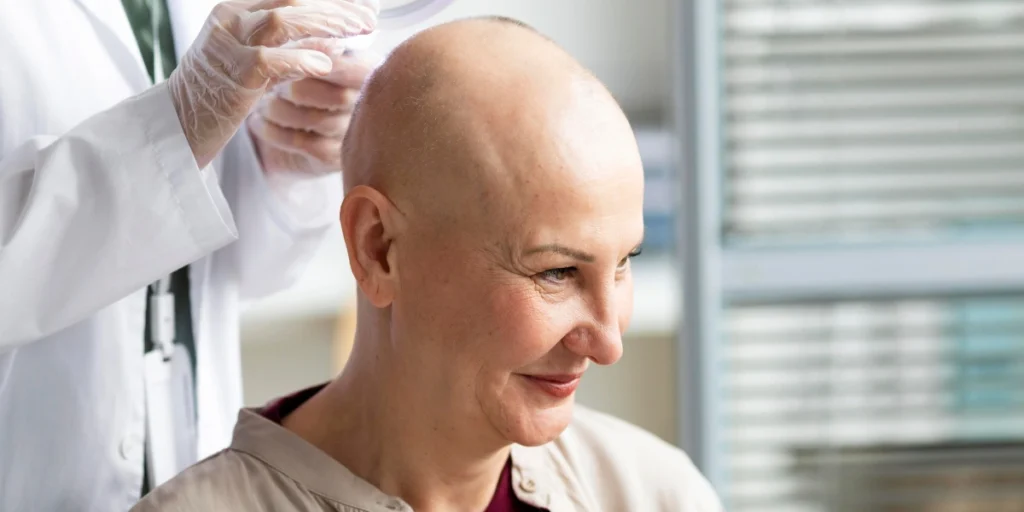
Clinical trials are carefully monitored studies that test new treatments or medical approaches in human volunteers.
In the case of chemotherapy, trials often focus on improving drug safety, reducing side effects, and enhancing recovery.
Some trials in the UK are dedicated specifically to preventing hair loss during chemotherapy and promoting hair regrowth after treatment.
They are conducted under the supervision of the NHS, research hospitals, and certified oncology centres.
Why Chemotherapy Causes Hair Loss
Chemotherapy drugs work by targeting rapidly dividing cells to stop cancer from growing.
Unfortunately, the same drugs can also affect other fast-growing cells, including those in the hair follicles.
As a result, many patients experience partial or complete hair loss a few weeks after starting chemotherapy.
Hair usually begins to regrow once treatment ends, but it may take several months to return to its natural texture or colour.
Current Research on Hair Loss Prevention in Chemotherapy
Modern science is changing the way doctors and researchers approach hair loss caused by chemotherapy.
Clinical trials in the UK are focusing on innovative ways to protect the hair follicles during treatment and encourage faster recovery after.
1. Scalp Cooling Systems
Scalp cooling or cold cap therapy is one of the most effective methods currently under study.
It works by reducing blood flow to the scalp during chemotherapy, limiting the amount of drug that reaches hair follicles.
Studies show that patients using scalp cooling experience significantly less hair loss compared to those who do not.
NHS hospitals across the UK, including those in London, Manchester, and Birmingham, are participating in trials using advanced cooling caps.
2. Stem Cell and Regenerative Therapies
Some clinical trials are exploring stem cell-based treatments that protect or repair hair follicles damaged by chemotherapy. These studies aim to restore hair growth naturally without additional medication or surgery.
Researchers are also investigating growth factor therapies and platelet-rich plasma (PRP) treatments that encourage the regeneration of healthy follicles after chemotherapy.
3. Neo Adjuvant Chemotherapy and Hair Protection
Neo adjuvant chemotherapy, given before surgery, allows doctors to observe how tumours respond to medication. During these trials, researchers are also studying how different drug combinations and dosages affect hair loss. This helps oncologists design more patient-friendly treatment plans that reduce unwanted effects.
Role of Chemotherapy Nurses in Hair Loss Support
A chemotherapy nurse plays a vital role in guiding patients through the treatment process. They provide education about potential side effects, help patients prepare for hair changes, and offer support for both physical and emotional wellbeing.
Chemotherapy nurses are often the first to inform patients about available clinical trials for hair loss prevention and treatment. They also assist in managing scalp care routines, such as using mild shampoos, avoiding heat styling, and maintaining scalp hygiene during treatment.
How to Join Chemotherapy Clinical Trials in the UK
Patients interested in joining a chemotherapy-related clinical trial for hair loss can start by speaking with their oncologist or chemotherapy nurse. They can provide information about eligibility, potential risks, and expected outcomes.
You can also find ongoing trials through trusted sources such as:
- The NHS Clinical Trials Gateway
- Cancer Research UK trial listings
- UK Clinical Trials Database (UKCTG)
Participation in a trial is voluntary and includes full consent and safety monitoring. Many trials also offer counselling and hair care support to help patients manage emotional stress during treatment.
Chemotherapy Side Effects Beyond Hair Loss
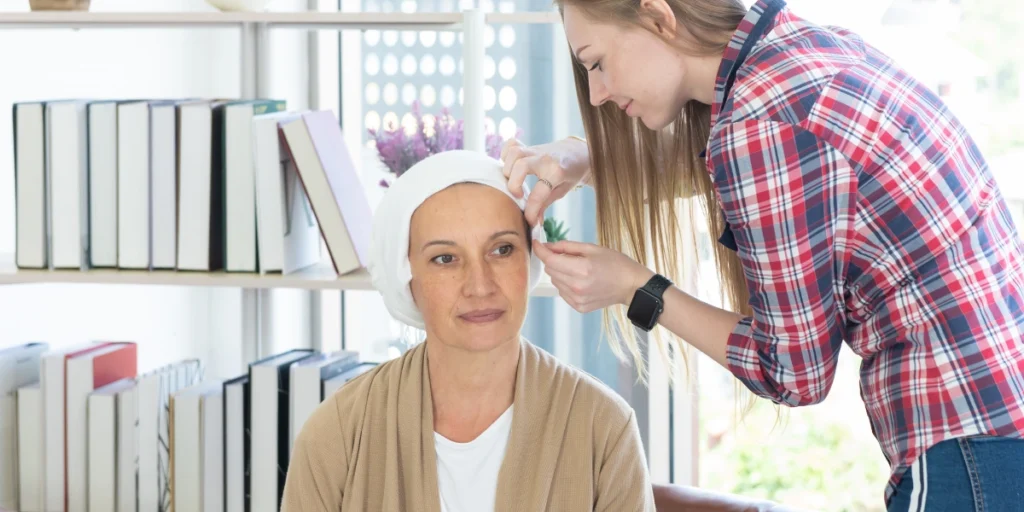
While hair loss is one of the most visible side effects, chemotherapy can also cause other temporary reactions. Common side effects include:
- Fatigue and weakness
- Nausea and vomiting
- Loss of appetite
- Sensitivity to infection
- Dry skin or nail changes
Ongoing trials aim to reduce all these effects together, creating a more tolerable treatment experience.
Promising Results from UK Clinical Trials
Recent studies in leading UK cancer centres show encouraging progress. Many patients using scalp cooling systems reported up to 70 percent less hair loss.
Others who participated in regenerative therapy trials experienced faster hair regrowth within weeks after chemotherapy ended. The combination of advanced medical devices, improved drug formulations, and personalised care plans is reshaping the patient experience in chemotherapy.
The Emotional Impact of Hair Loss and Recovery
Hair loss during chemotherapy can be emotionally distressing. It often reminds patients of their illness and can affect self-esteem. Support groups, counselling services, and specialised hair clinics now form an important part of cancer care in the UK.
Many hospitals collaborate with charities that offer free wigs, headscarves, and cosmetic advice. Emotional support, combined with modern clinical research, helps patients face treatment with greater confidence.
Frequently Asked Questions
1. Can chemotherapy hair loss be prevented completely?
While complete prevention is not always possible, scalp cooling and other clinical methods can reduce hair loss significantly for many patients.
2. How long does it take for hair to regrow after chemotherapy?
Hair typically begins to regrow within three to six months after treatment ends. Clinical trials are exploring ways to make this process faster and healthier.
3. Are chemotherapy hair loss trials safe to join?
Yes. All trials are reviewed by ethical research boards and approved by the NHS before involving human participants.
4. What is the role of PRP in chemotherapy hair loss treatment?
PRP therapy uses the patient’s own platelets to stimulate hair regrowth after chemotherapy. Some UK trials are currently studying its effectiveness.
5. Where can I find chemotherapy clinical trials near me?
You can visit the NHS Clinical Trials Gateway or the Cancer Research UK website for updated listings of chemotherapy-related trials across the UK.
Take the Next Step
If you or someone you know is preparing for chemotherapy and concerned about hair loss, clinical trials in the UK may offer hope and advanced solutions. These studies are changing the way we understand and manage treatment side effects, helping patients maintain confidence throughout recovery.
Speak with your oncologist or chemotherapy nurse today to learn more about ongoing trials and see if you qualify to participate.
